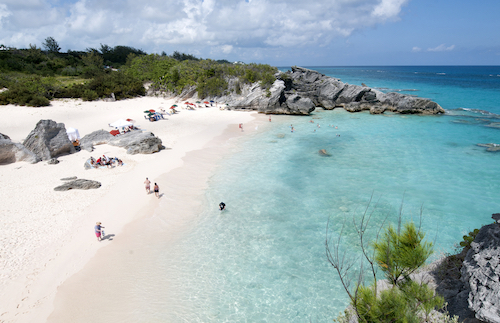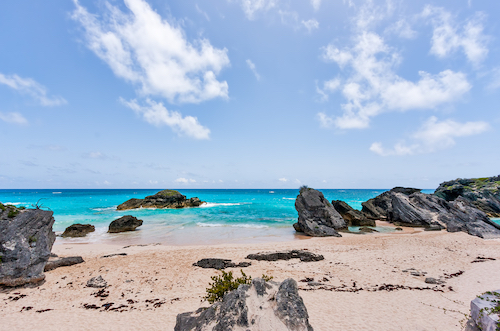The wealthy island of Bermuda is an appealing prospect for expats seeking work. It is a beautiful island with opportunities for a high-end lifestyle, plus high wages and tax breaks. 20% of Bermuda’s population are expats and the island has zero unemployment. You will, however, need to go through some bureaucracy, so we are going to look below at some of the pros and cons of working on the island.Unless you fall under one of the limited work permit exemption categories (for example, if you have permanent residency), you will have to apply for a work permit: it is not legal to work without one and you are not allowed to seek employment while visiting the island as a tourist.
If you wish to work in Bermuda, therefore, you must set up employment before you arrive on the island. In addition, a work permit is issued to an employer, not to the employee – if you lose your job, your new employer will have to re-apply.
Most work permits are issued for 1-3 years (the maximum term limit of 6 years no longer applies: this ended in 2013). You have several options.
A standard work permit is issued for 1-5 years.
A periodic work permit is issued when an employer hires a non-resident who will need to visit the island several times over a period for short intervals (for example, for up to 30 days). This might apply to you if you are contracted for consultancy work, for instance. Because work permits are issued to employers, a Bermudan company is likely to obtain the permit for your consultancy firm and if this consists of staff other than yourself, the same work permit can apply to different people.

Short term work permits are issued if you are visiting Bermuda for a brief period (for instance, as an entertainer doing a performance).
A global work permit is for people who are already working for an overseas company and are relocated to their branch in Bermuda.
There are also new business start-up work permits for new companies, and global entrepreneur work permits, for hiring consultants for up to one year.
Residents do not need a work permit but residency is not offered to foreign nationals and in addition to this, employers must try to find local hires first. This is common to many smaller countries, who try to prioritise jobs for their own populations. Employers must prove that they have tried to hire Bermudans and must give good reasons for employing a foreign national instead.
You will also only be allowed to take up one job: you will not be able to take up a main job with a part time evening job as well, for example. You will also need to remain in your job for up to two years before applying for another, unless you are made redundant. It is hard to find casual labour in Bermuda due to the governmental restrictions and the island’s working climate is most rewarding to those who have a high level of academic or professional qualifications.

The island does have a few skills shortages but seeks to plug these with local hire.
Bermuda has a legal requirement for proficiency in English, particularly in the construction industry (this relates to health and safety standards) and for contract work (this falls under what is known as the ‘Portuguese Accord’ relating to contractual hire). The Department of Immigration is allowed to test people’s proficiency in English if there is any doubt.
The main sectors for employment are in IT, accounting, law, reinsurance, banking and tourism, so if you have experience and qualifications in these sectors you should have a good chance of finding employment.
The standard working week consists of 8 hours per day or 40 hours per week, Mondays to Fridays. Working hours typically run from 9 a.m – 5 p.m. with an hour allotted for lunch. If you work more than 40 hours, you are entitled to receive overtime pay at 1.5 x your basic salary.

From May 2019, a minimum wage of $12.25 per hour has been introduced, representing a gross income of $25,480 per year: this is about 40 per cent of the median wage income of $63,712. This is part of a policy to address the high cost of living on the island and establish a national living wage by 2021 – estimated to be around $18 per hour.
You will be entitled to 8 weeks of maternity leave if you have been working for your employer for less than a year. If you have been employed for over a year, you will be eligible for 12 weeks of maternity leave, 4 of which will be unpaid. There is no legal provision for paternity leave but in practice some employers do offer you a week after the birth of your baby.
Your spouse will be able to work, but will need their own work permit.
Job Vacancies
You can make speculative applications but note that, as above, you will need to set up employment before entering the island.
There are a number of job fairs but these tend to be in Bermuda itself. There are, however, a number of recruitment agencies.
Applying For A Job
A single page resume should be sufficient. Bermuda is a British territory, but there are a number of American companies on the island and the terms ‘CV’ and ‘resume’ are used interchangeably. If you are applying through a job agency, you can ask if anything specific for your chosen sector or prospective employer is required.

Discrimination on the basis of sexual orientation, race, gender, marital status, disability, religious or political beliefs are all prohibited by law (note that age is not included). It is even illegal to discriminate against someone with a criminal record, unless the offence might have a specific impact upon a particular job.
Qualifications And Training
As mentioned, your chances of finding a job in Bermuda will be best if you are seeking work as a highly-qualified expat in a profession such as the financial industry. A minimum of an undergraduate degree is desirable.
Would you like to share your experience of life abroad with other readers? Answer the questions here to be featured in an interview!

